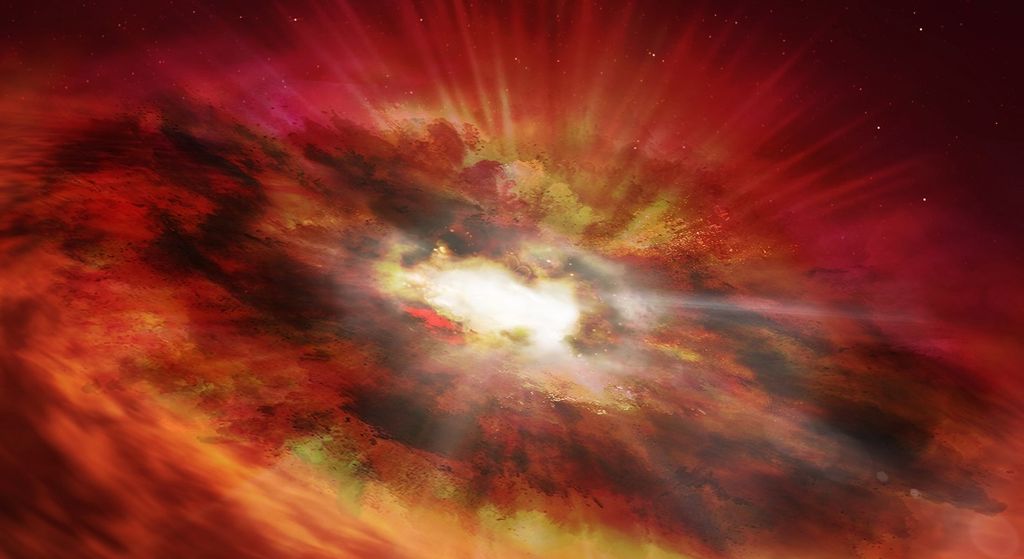Ultra-rare black hole ancestor detected at the dawn of the universe
By Brandon Specktor published about 15 hours ago
Part galaxy and part quasar, the dusty red object formed just 750 million years after the Big Bang.

An artist's impression of a transitioning red quasar, wrapped in hot gas from the beginning of time (Image credit: ESA/Hubble, N. Bartmann)
Astronomers have discovered a dusty, red object 13 billion light-years from Earth that may be the earliest known ancestor of a supermassive black hole.
The ancient object shows characteristics that fall between dusty, star-forming galaxies and brightly glowing black holes known as quasars, according to the authors of a new study, published April 13 in the journal Nature. Born just 750 million years after the Big Bang, during an epoch called the "cosmic dawn," the object appears to be the first direct evidence of an early galaxy weaving stardust into the foundations of a supermassive black hole.
Objects like these, known as transitioning red quasars, have been theorized to exist in the early universe, but they have never been observed — until now.
"The discovered object connects two rare populations of celestial objects, namely dusty starbursts and luminous quasars," lead study author Seiji Fujimoto, a postdoctoral fellow at the Niels Bohr Institute at the University of Copenhagen, said in a statement. "[It] thereby provides a new avenue toward understanding the rapid growth of supermassive black holes in the early universe."
More:
https://www.livescience.com/transitioning-red-quasar
